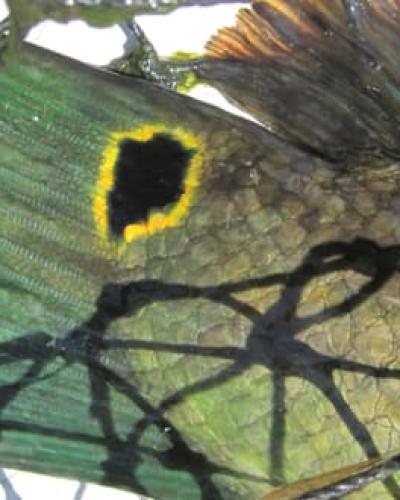Organismal biology, the study of structure, function, ecology and evolution at the level of the organism, provides a rich arena for investigation on its own, but also plays a central role in answering conceptual questions about both ecology and evolution. Organisms connect ecology, physiology, and behavior to the fields of comparative genomics, evolutionary development, and phylogenetics. Organismal-level study is crucial throughout comparative biology, which becomes increasingly potent as the genomes of more and more organisms are sequenced and annotated. Faculty in EEB share a conviction that studies of ecological and evolutionary processes are more efficient, and their results more reliable, when they are solidly grounded in a naturalist's detailed familiarity with the organisms being studied.
We study the underlying molecular and environmental bases of individual variation and the consequences of phenotypic variation for fitness and organismal interactions. We study organismal structure with methods ranging from traditional dissections to micro-CT scans, and we study function with methods ranging from whole-body physiological performance to detailed functional genomics. Using these methods, we explore, both within and between clades, the causes and consequences of variation in a wide suite of traits: mating and migration systems; immunological defenses; swim bladders and feathers.
The Department includes the Cornell University Museum of Vertebrates (CUMV) and these collections serve as the foundation for a rich community of organismal biologists with whom we interact at the Laboratory of Ornithology and The Paleontological Research Institution. The CUMV collections have nationally important holdings of fish, birds, mammals, reptiles, and amphibians that reflect faculty research interests in vertebrate biology since the University's founding.
Studies of the genetic structure of natural populations of animals and plants focus on understanding patterns of dispersal, and the nature of barriers to gene exchange; together with studies of ecology and behavior, such studies allow detailed analysis of how genotype, phenotype, and environment combine to determine evolutionary trajectories.
Related people

Assistant Professor

Professor Emeritus

Edwin H. Morgens Professor of Ornithology Emeritus

Senior Lecturer

Professor Emeritus and Louis Agassiz Fuertes Director Emeritus, Cornell Laboratory of Ornithology

Professor

Assistant Professor CALS Graduate Diversity and Inclusion Lead

Associate Professor

Liberty Hyde Bailey Professor

Fuller Professor of Ornithology Senior Director for Academic Affairs and Director of the Fuller Evolutionary Biology Program, Cornell Laboratory of Ornithology Director, Cornell University Museum of Vertebrates

Professor Emerita

Associate Professor Dwight Webster Sesquicentennial Faculty Fellow

Adjunct Professor

Martha N. & John C. Moser Professor of Arthropod Biosystematics and Biodiversity Director & Curator of the Cornell University Insect Collection

Professor Louis Agassiz Fuertes Director, Cornell Laboratory of Ornithology

Professor Associate Curator of Lepidoptera, Cornell University Insect Collection

Professor Emeritus

Professor

Associate Professor

Professor Emerita

